Photographs: Reuters
Mukesh Ambani, ranked as India’s most powerful CEO, represents the changing face of Corporate India.
He exemplifies the glory of India Inc’s success, global prowess and competence.
A study by The ET Corporate Dossier rates India’s top CEOs on the basis of leadership, strategy & innovation, performance, stature, social contribution and governance.
Here’s a list of India’s 20 most powerful CEOs…
Mukesh Ambani
Rank: 1
“Today I see a billion people as a billion potential consumers, an opportunity to generate value for them and to make a return for myself.” - Mukesh Ambani
A visionary businessman, Mukesh Ambani, recently said “India's future is digital.”
Announcing the Reliance Jio initiative, which aims to transform the lives of 1.2 billion Indians, he dreams of an India where everything can be done digitally to create a life-changing experience.
Mukesh started his career in Reliance at a young age of 24, heading a slew of new initiatives.
Living up to the expectations of his father, Dhirubhai Ambani, he played a key role in Reliance's rapid expansion from textiles to polyester fibres, petrochemicals, petroleum refining and oil exploration.
He also led the creation of the world’s largest grassroots petroleum refinery at Jamnagar in Gujarat.
With a net worth of $21.5 billion, Mukesh Ambani is the world’s richest Indian.
...
India's most powerful CEOs
Image: Azim Premji, chairman of Wipro.Photographs: Jagadeesh N V/Reuters
Azim Premji
Rank: 2
“I have learnt that a rupee earned is of far more value than five found. In fact, what is gifted or inherited follows the old rule of come easy, go easy. I guess we only know the value of what we have if we have struggled to earn it." - Azim Premji
The philanthropic face of India Inc, Azim Premji is the chairman of Wipro. Premji has been at the helm of Wipro since his return from Stanford University in the late 1960's.
Premji transformed a $2 million hydrogenated cooking oil company into the $7.3 billion revenue IT, BPO and R&D Services organisation with a presence in 54 countries.
Premji is known for his commitment to values and believes that ordinary people are capable of extraordinary things when organised into highly charged teams.
He takes keen personal interest in developing leaders and teams and spends time in Wipro's leadership development programs.
Setting a path for corporate leaders, Premji who is India’s third richest man, has donated $4.4 billion towards various philanthropic initiatives.
He has been featured among the 100 most influential people by the TIME Magazine, in 2004 and in 2011. Business Week has ranked Premji as one of the 'Greatest Entrepreneurs'.
...
India's most powerful CEOs
Image: Ratan Tata, Chairman Emeritus of Tata group at the Vibrant Gujarat Summit.Photographs: Amit Dave/Reuters
Ratan Tata
Rank: 3
“Ups and downs in life are very important to keep us going, because a straight line even in an ECG means we are not alive.” - Ratan Tata
The Tata group owes its success to Ratan Tata. One of India’s most admired corporate leaders, Tata led the transformation of the Tata group from a conventional corporate house into a $100 billion global conglomerate with several high-profile acquisitions.
Under Tata’s leadership, the group's revenues zoomed to $100.09 billion in 2011-12 from a turnover of just Rs 10,000 crore (Rs 100 billion) in 1971.
Ratan Tata is a "terrific combination" of the four necessary leadership qualities -- character, commitment, competence and courage, Kishor Chaukar, Managing Director,Tata Industries once said.
Tata began his career in the Tata group in 1962, working on the shop floor of Tata Steel. When J. R. D. Tata stepped down in 1991, he named Ratan Tata as his successor.
He was also chairman of the major Tata companies, including Tata Motors, Tata Steel, Tata Consultancy Services, Tata Power, Tata Global Beverages, Tata Chemicals, Indian Hotels and Tata Teleservices.
After completing 21 illustrious years as the chairman of the group, Ratan Tata retired in December 2012.
He is now the Chairman Emeritus of the group, an honorary position. Rata Tata was awarded the Padma Bhushan in 2000 and Padma Vibhushan in 2008. He was awarded by the Rockefeller Foundation for 'innovation in philanthropy'.
Ratan Tata is passionate about cars and flying jets. He plans to spend time on technology, flying, learning piano besides lending a hand in philanthropic initiatives.
...
India's most powerful CEOs
Image: Kumar Mangalam Birla.Photographs: Courtesy, Aditya Birla group
Kumar Mangalam Birla
Rank: 4
“Well, I think the golden rule I can think of is the fact that you must follow your passion and do something that's close to your heart. And I think that that's very important, well, to be successful and to be happy.” - Kumar Mangalam Birla
From taking over the reins of the company at the young age of 28, Kumar Mangalam Birla has come a long way.
In 1995, after the untimely demise of his father, Birla took over as the chairman. It was a huge burden for the reserved and young Birla to take up the responsibility.
Many people had apprehensions about his capabilities. However, in the next two decades, he worked towards building the company and enhancing stakeholder value.
He was instrumental in raising the group's turnover from $2 billion in 1995, to $40 billion today. Birla has restructured the businesses to emerge as a global/national leader in the sectors.
He has made 26 acquisitions in 17 years in India and globally, the highest by an Indian multinational in India. In 2012, he was awarded the Forbes India Leadership Award and Nasscom’s Global Business Leader Award.
...
India's most powerful CEOs
Image: Chanda Kochhar speaks during a news conference in Mumbai.Photographs: Punit Paranjpe/Reuters
Chanda Kochchar
Rank: 5
“The leader in a way has to be like a sponge that has to absorb the stress because you know if you just allow stress to filter through and pass to your team then you're not doing a leader's job.” - Chanda Kochchar
An ambitious Chanda Kochchar wants ICICI Bank to be listed among the world's twenty biggest banks within the next decade. Looking at every challenge as an opportunity, Kochchar stands tall in the corporate world dominated by men.
This year, Chanda Kochchar emerged as India’s highest paid banker with a whopping salary of Rs 5.12 crore (Rs 51.2 million).
The first women CEO of ICICI Bank, Chanda Kochhar took over the bank in the middle of the global financial crisis, yet she steered the bank ahead to remain profitable.
She has been ranked as the most powerful business woman in India in the Forbes list of 'The World's 100 Most Powerful Women 2013'.
She is recognised for her role in shaping the retail banking sector in India. Kochhar began her career, with erstwhile ICICI Limited in 1984 and was elevated to the Board of Directors of ICICI Bank in 2001.
She was conferred with the Padma Bhushan, one of India's highest civilian honours in 2011.
...
India's most powerful CEOs, Mukesh Ambani tops
Image: Anil Ambani, chairman of the Reliance Anil Dhirubhai Ambani Group.Photographs: Reuters.
Anil Ambani
Rank: 6
“Our goal is not just to build a great enterprise for our stakeholders, but, more importantly, to build a great future for our country and the world at large; to give hundreds of millions of people the power to fulfill their dreams, shape their own destiny,” says Anil Ambani chairman of all listed companies of the Reliance Group, namely, Reliance Communications, Reliance Capital, Reliance Energy and Reliance Natural Resources.
Anil Ambani started his career in Reliance Industries as the Co-Chief Executive Officer in 1983.
He played a key role in transforming Reliance Group along with his brother Mukesh Ambani.
However, the brothers split the company after a bitter ownership battle. Anil Ambani is credited with pioneering several financial innovations in the Indian capital markets.
He spearheaded the country’s first foray into overseas capital markets with international public offerings of global depositary receipts, convertibles and bonds.
...
India's most powerful CEOs
Image: Bharti Enterprises chairman Sunil Mittal speaks during a news conference in Mumbai.Photographs: Punit Paranjpe/Reuters
Sunil Mittal
Rank: 7
“Practice is the real thing, rest is all theory. I didn’t go to a B-school, instead learnt lessons on the streets and at every opportunity, tried to assimilate, gather and absorb some of the practices that were required to create an enterprise.” - Sunil Mittal
Telecom king Sunil Bharti Mittal has an inspiring success story. He started building his business fortune at a young age of 18.
A born entrepreneur, Mittal started his first business in April 1976, with Rs 20,000 borrowed from his father. His first business was to supply spare parts for local bicycle manufacturers.
In 1980, he along with his brothers started an Import Enterprise named Bharti Overseas Trading Company. Later, he sold this business and moved to Mumbai for better business prospects.
After dabbling with the import of electric power generators from Japan for sometime, he switched to assembling push-button phones in India. Soon Bharti Telecom Limited (BTL) was incorporated and by the early 1990s, Mittal was into manufacturing telecom equipment.
In 1992, he bid for one of the four mobile phone network licences auctioned in India. He was among the first entrepreneurs to assess the potential of the mobile telecom business.
Under his leadership, Bharti Enterprises has emerged as one of India’s leading business groups with interests in telecom, retail, realty, financial services and agri-products.
...
India's most powerful CEOs
Image: N ChandrasekharanPhotographs: World Economic Forum/Wikipedia Commons.
N Chandrasekharan
Rank: 8
“Today’s leaders have to be agile in thought and action. Operating in a rapidly changing and volatile economic environment means there may often be a need to carry out course corrections, especially in the context of a global business." - N Chandrasekharan
N Chandrasekharan is one of the youngest CEOs of the Tata Group.
He joined TCS in 1987 after completing his Masters in Computer Applications from Regional Engineering College, Trichy, Tamil Nadu.
He raced ahead through various ranks to reach the helm. N Chandrasekaran is today the Chief Executive Officer (CEO) and Managing Director of Tata Consultancy Services, with consolidated revenues of $11.6 billion for year ended March 31, 2013.
Under his leadership, since October 2009, the company has grown at a compounded annual rate of 21 per cent. Tata Consultancy Services (TCS) had recently raised Chandrasekaran’s salary by 50 per cent to Rs 15 lakh per month from April 2014.
TCS was consistently ranked throughout 2012 as the most valuable company in India. He is also the chairman of the National Association of Software & Service Companies (Nasscom) for 2012-2013.
He won the ‘Best CEO of the Year’ award at the Forbes India Leadership Awards 2012. He is interested in photography and running marathons.
...
India's most powerful CEOs
Image: Anand G. Mahindra, vice chairman and managing director of Mahindra & Mahindra, speaks during a news conference in Seoul.Photographs: Truth Leem/Reuters
Anand Mahindra
Rank: 9
Anand Mahindra started off his career in 1981 when he joined Mahindra Ugine Steel Co (MUSCO), a major producer of specialty steels, as Executive Assistant to the Finance Director.
In 1989, he was appointed President and Deputy Managing Director of the company. At the young age of 36, he faced revolt from workers when asked to beef up productivity.
However, the enraged workers finally gave into his demands and agreed to improve their efficiency.
He initiated a comprehensive change program to make the company an efficient and aggressive competitor in the new liberalised economic environment in India. He was finally appointed as the chairman of the board in 2012.
The company has business across key sectors like automobiles, information technology, tractors, real estate development, aerospace, retail, defence, energy, financial services and logistics. During his tenure, the Mahindra Group took significant steps forward through inorganic growth.
Notable acquisitions include Ssangyong Motors, Reva Electric Car Company, Satyam Computer Services (now merged with Tech Mahindra), Aerostaff Australia, and Gippsland Aeronautics.
...
India's most powerful CEOs
Image: Aditya Puri, managing director of HDFC Bank.Photographs: Arko Datta/Reuters
Aditya Puri
Rank:10
“Life is a combination of work, family, friends and hobbies, and of this, work is the least important and most easy to replace. I realised this about halfway into my career,” Aditya Puri.
Aditya Puri states ‘hard work and passion’ as his success mantra.
Puri has been the Managing Director of the HDFC Bank since September 1994. With nearly four decades years of experience in the banking sector in India and abroad, HDFC Bank has made rapid strides under his leadership.
During his tenure, Puri led the Bank through two major mergers in the Indian banking industry merger of Times Bank and Centurion Bank of Punjab with HDFC Bank. Puri was the earlier the Chief Executive Officer of Citibank, Malaysia from 1992 to 1994.
...
India's most powerful CEOs
Image: HDFC Bank chairman Deepak Parekh.Photographs: Punit Paranjpe/Reuters
Deepak Parekh
Rank: 11
“Our policy on FDI is akin to inviting guests over to our house, but when they arrive, we refuse to open the door." Deepak Parekh
A chartered accountant, Deepak Parekh began his career with Ernst & Young Management Consultancy Services in New York. After returning to India, he worked with Grindlays Bank and also Chase Manhattan Bank as its assistant representative for South Asia.
Parekh joined HDFC in 1978. He was promoted to Managing Director in 1985 and appointed as Chairman in 1993. Under his leadership, HDFC has transformed itself into one of India's premier housing finance institutions.
A master trouble-shooter, Deepak Parekh is an active member of various high-powered Economic Groups and advisory Boards of several Indian corporates and MNCs.
Deepak Parekh has won several awards including the JRD Tata Corporate Leadership Award by All India Management Association (AIMA). He has also received the Padma Bhushan.
...
India's most powerful CEOs
Image: Y C Deveshwar, chairman of ITC.Photographs: Jayanta Shaw/Reuters
Y C Deveshwar
Rank: 12
“Creating an engine of growth for the Indian society that fosters such large scale sustainable and inclusive development is at once a humbling and satisfying experience.“ - Y C Deveshwar
A man known for his bold decisions, Y C Deveshwar has nurtured aggressive plans for the company.
The fact that ITC has grown into one of India’s most recognised enterprises is an example of his business acumen. Deveshwar joined ITC in 1968 and became the chief executive and chairman on January 1, 1996.
Over the last 16 years, ITC's businesses spanning fast moving consumer goods, hotels, paperboards and packaging, agri-business and information technology have made steady progress.
ITC has consistently delivered a shareholder return of around 26 per cent in the last 15 years.
In 2012, Harvard Business Review ranked Deveshwar as the 7th Best Performing CEO in the World. Deveshwar was conferred the Padma Bhushan in 2011.
...
India's most powerful CEOs
Image: Tata Group Deputy Chairman Cyrus Mistry attends the annual general meeting of Tata Steel.Photographs: Danish Siddiqui/Reuters
Cyrus Mistry
Rank: 13
As Ratan Tata handed over the reins of the company to the unassuming Cyrus Mistry, he said, "You should be your own person, you should take your own call and you should decide what you want to".
“There is strong chemistry between Mistry and Ratan Tata. He is very thorough and has good financial insight, J J Irani, former director, Tata Sons remarked after his appointment as chairman.
Finding a successor to fill Ratan Tata’s place was indeed a tough job. Cyrus Mistry now has the tougher job of living up to the expectations of the Group and consolidating the business.
A focused person and a hard task master, Mistry has already asked top executives to curb spending.
Son of construction tycoon Pallonji Shapoorji, Mistry has served as the managing director of Shapoorji Pallonji & Company.
He joined the Tata Sons' board a year after his father retired as director in 2005. Besides his passion for Golf, like his predecessor Ratan Tata, Mistry too loves cars.
...
India's most powerful CEOs
Image: Shiv Nadar.Photographs: Rediff Archives
Shiv Nadar
Rank: 14
Restless and passionate, Shiv Nadar’s favourite quote is “Only the Paranoid Survive”.
Under Nadar’s leadership, HCL played a crucial role in revolutionising the Indian technology sector with the first 8-bit microprocessor-based computer in 1978, the first Relational Database Management System in 1983, client- server architecture in 1984, and world’s first fine-grained multi-processor UNIX installation in 1989.
Creating one of the largest mobile distribution network with Nokia, HCL played a key role in supporting India’s telecom revolution.
In the last three decades, HCL has evolved into a $6.3-billion global enterprise with over 100,000 professionals.
In 2009, Forbes Magazine featured him in its list of 48 Heroes of Philanthropy in the Asia Pacific region. Nadar won the Padma Bhushan for his contribution in the IT industry in 2001.
...
India's most powerful CEOs
Image: Chairman of The Godrej Group Adi Godrej speaks on the sidelines of the World Economic Forum (WEF) India Economic Summit in Mumbai.Photographs: Vivek Prakash/Reuters
Adi Godrej
Rank: 15
An innovative and inspiring business leader, Adi Godrej is known for modernising and revamping his family business into one of India’s largest conglomerates.
It operates across diverse sectors such as real estate, consumer products, industrial engineering, appliances, furniture, security and agricultural products.
For his contribution to Indian industry, Godrej has received several awards and recognitions including the Rajiv Gandhi Award in 2002.
He was awarded the Padma Bhushan in 2013. He also won the prestigious Ernst & Young Entrepreneur of The Year India Award in February 2013.
A philanthropist, Godrej has made contributions for improving the education sector.
...
India's most powerful CEOs
Image: Managing Director of Bajaj Auto Rajiv Bajaj speaks during a news conference in New Delhi.Photographs: Tanushree Punwani/Reuters
Rajiv Bajaj
Rank: 16
"We are No. 1 in technology, in exports, in market cap, in profitability....the only bit that remains is to be a leader in volumes." - Rajiv Bajaj
Rajiv Bajaj, the eldest son of industrialist Rahul Bajaj, joined his family business in the late 90s.
During that time, Bajaj was losing its market share. However, Rajiv Bajaj worked towards improving business and established Bajaj Pulsar as one of the country’s favourite brands.
Bajaj has worked with manufacturing and supply, research and development, marketing and sales. He played an important role in bringing down costs and improving productivity in the company’s operations.
Interestingly, Rajiv Bajaj applies the principles of Homeopathy to build brands at Bajaj Auto.
...
India's most powerful CEOs
Image: Naveen JindalPhotographs: Rediff Archives.
Naveen Jindal
Rank: 17
“My motivation for becoming an MP is to take responsibility for issues that face this country as a whole, rather than only for my business and the limited corporate social responsibility attached with it.” - Naveen Jindal
Naveen Jindal is the Chairman of Jindal Steel and Power Limited and a Member of the Parliament.
Jindal believes that “growing together with customers, employees, shareholders and communities is the essence of being a good corporate citizen."
When he took over the Raigarh operations of Jindal Strips Limited (JSL) in 1993, it was a moderately performing company. Jindal optimised operational efficiencies in the company to turn around its fortunes.
JSPL is a part of the $18 billion diversified O.P. Jindal Group, which is the fourth largest business entity in India.
Jindal has been featured amongst the Asia’s 25 Hottest People in Business by the Fortune Asia magazine.
Naveen is also a national record holder in skeet shooting and an accomplished Polo player.
...
India's most powerful CEOs
Image: A M Naik.Photographs: Reuters
A M Naik
Rank: 18
Transforming Larsen & Toubro (L&T) into a world renowned conglomerate has been a dream come true for Anil Manibhai Naik.
Chairman of Indian engineering conglomerate and one of the most admired companies in India, Naik is known for dynamism, professionalism and a high ethics.
After joining the company as a Junior Engineer in 1965, Naik rose to positions of General Manager to Managing Director and CEO, and finally taking over chairman on December 29, 2003.
He was awarded the Padma Bhushan in 2009.
...
India's most powerful CEOs
Image: Shashi RuiaPhotographs: Rediff Archives.
Shashi Ruia
Rank: 19
Brothers Shashi Ruia and Ravi Ruia founded the Essar group in 1969. A strategist with risk taking abilities, Shashi Ruia was quick to realise the potential of infrastructure projects.
Essar began as a construction company in 1969 and diversified into manufacturing, services and retail.
Shashi Ruia has made significant contributions toward strengthening the infrastructure sector in India. He is responsible for steering the Essar Group to earn a global repute.
With revenues of $17 billion, Essar is today a global corporation with investments in the sectors of steel, energy, infrastructure and services with operations in more than 25 countries.
Passionate about education, Shashi Ruia takes great interest in mentoring youngsters.
...
India's most powerful CEOs
Image: Hemant Nerurkar.Photographs: Kham/Reuters
H M Nerurkar
Rank: 20
“You need to work hard and notch up your accomplishments. In this context, I must mention that many of my bosses have helped me in realising my ambitions over the years. You cannot choose your boss, just as you cannot be sure, when you get married, whether your spouse will support you and be tolerant of your work priorities. These are matters of fortuitousness.” - Hemant M Nerurkar
Hemant M Nerurkar is the Managing Director of Tata Steel. Nerurkar joined Tata Steel as a research engineer in 1972. He left the company in 1978 and returned after four years.
After that, there has been no looking back. He strived hard and rose through the ranks to reach the helm.
He is known for exceptional leadership qualities and innovative ideas. “I don’t have a work-life balance. And, while I’m working, I don’t think I will ever have,” says Nerurkar.
His experience ranges from project execution, manufacturing, quality control, supply chain management and marketing.

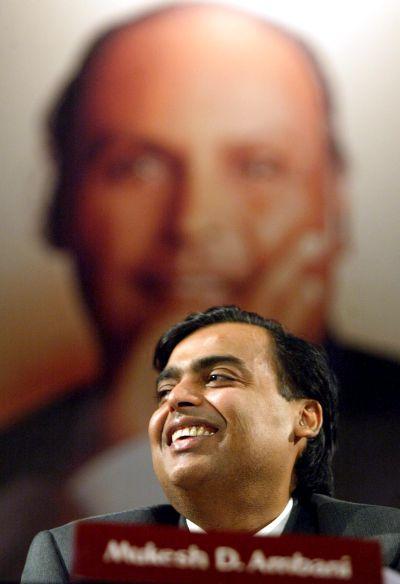
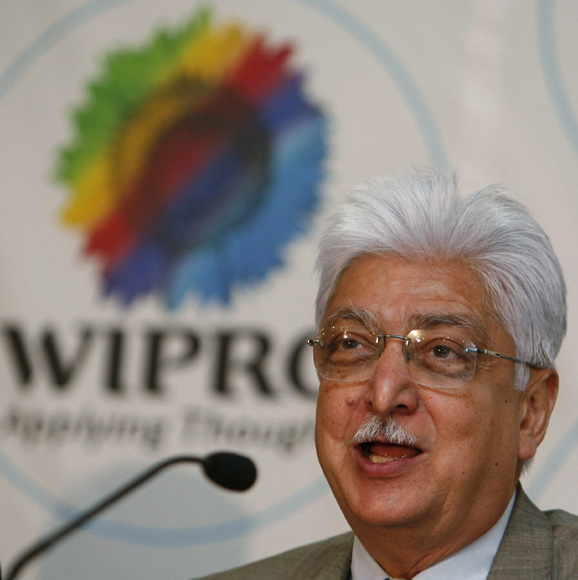
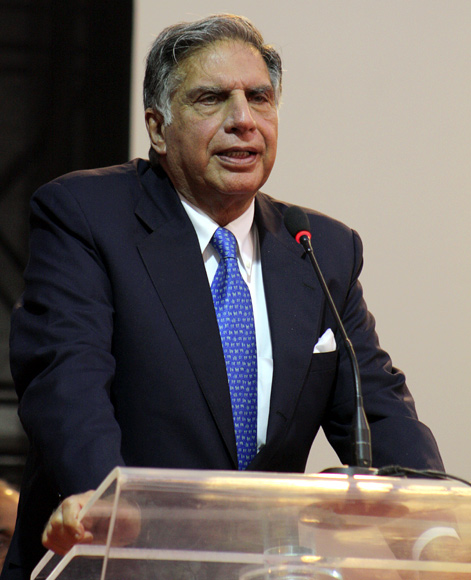
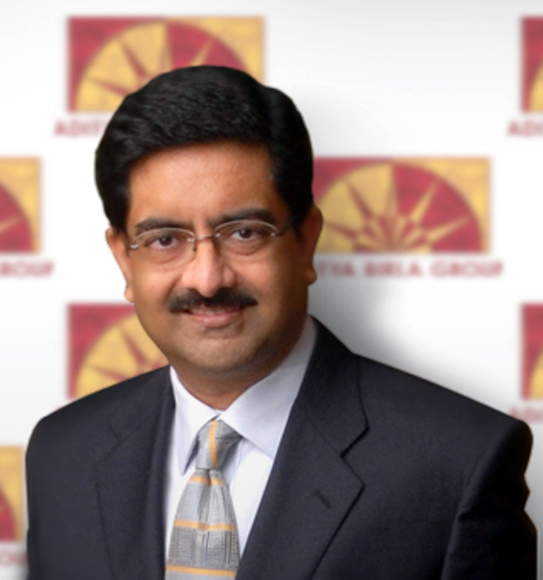
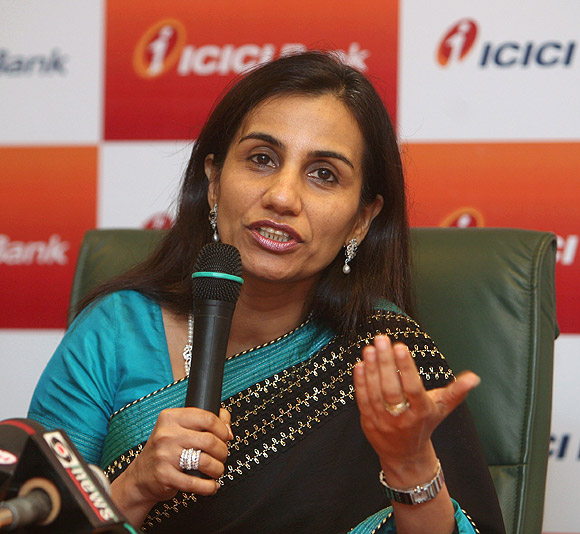
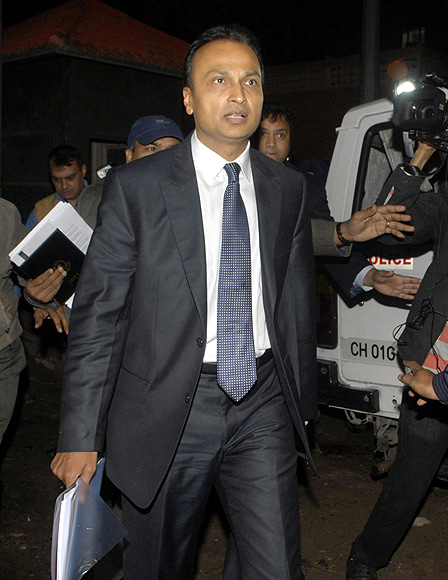
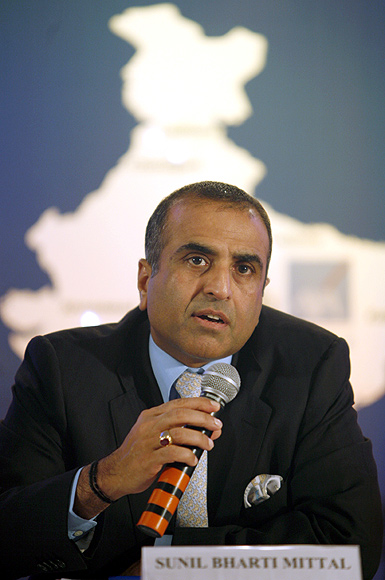
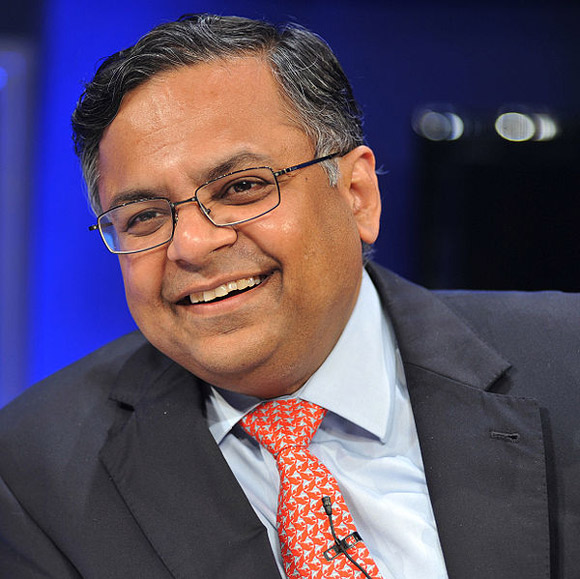

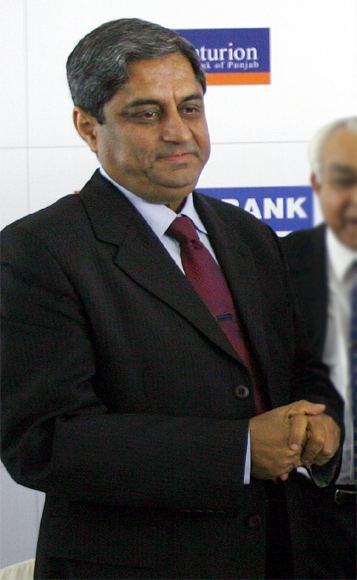
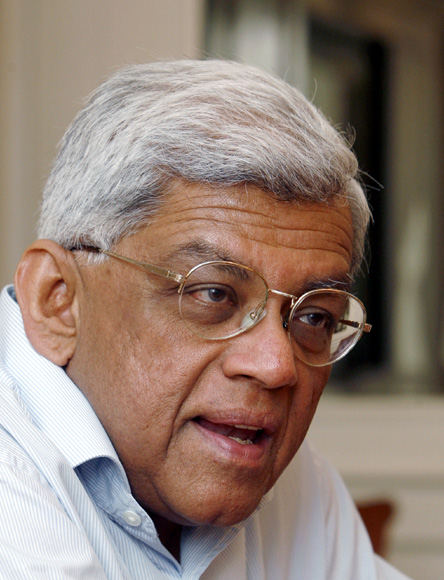
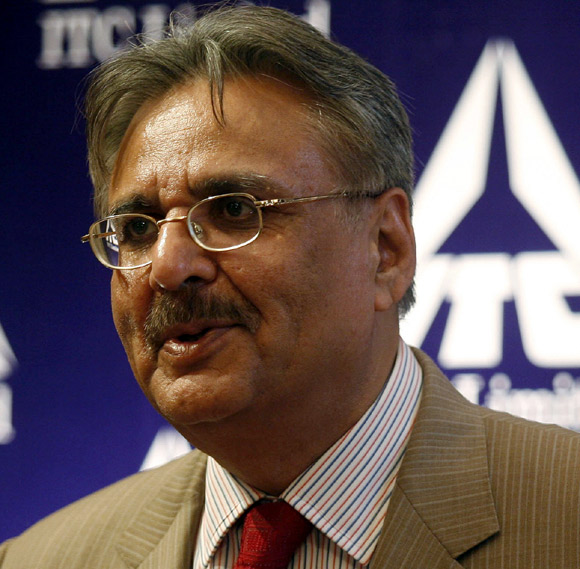
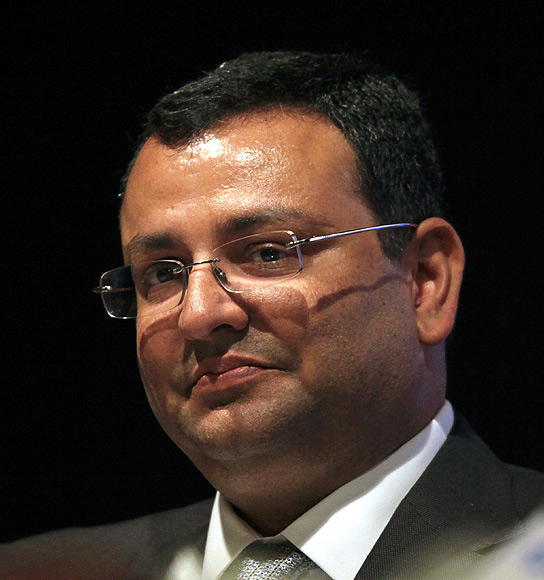
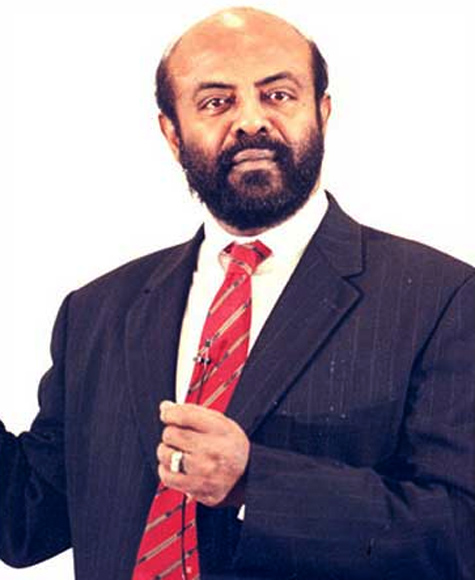

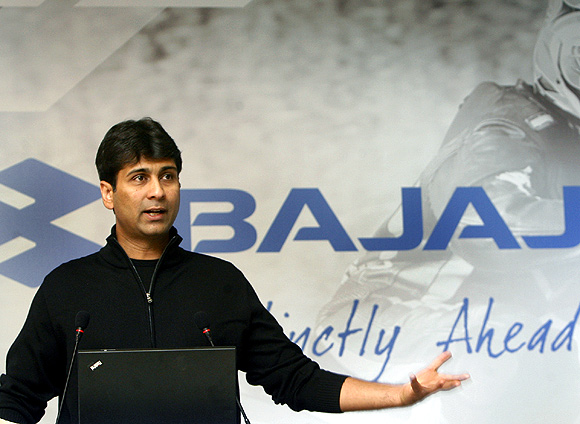
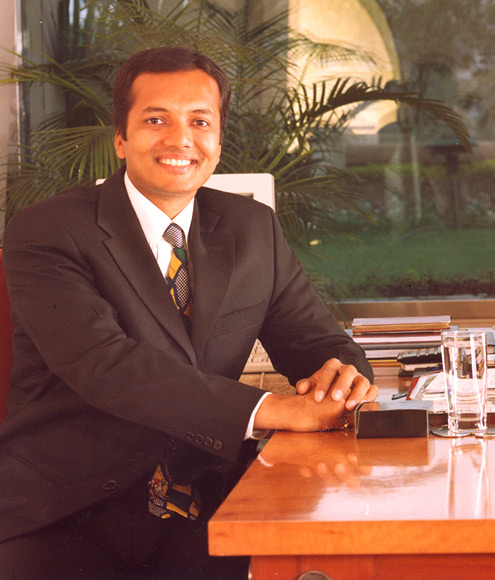
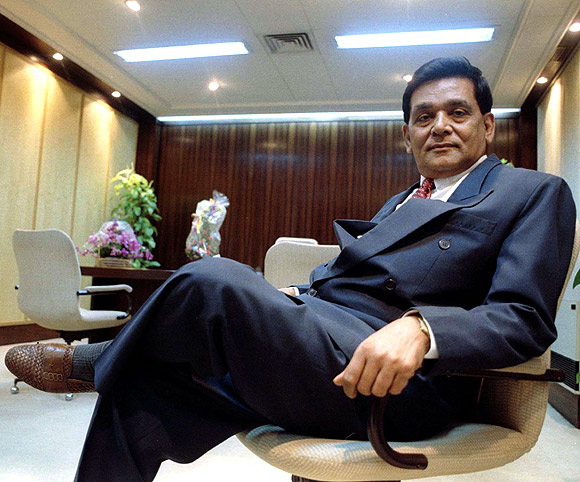
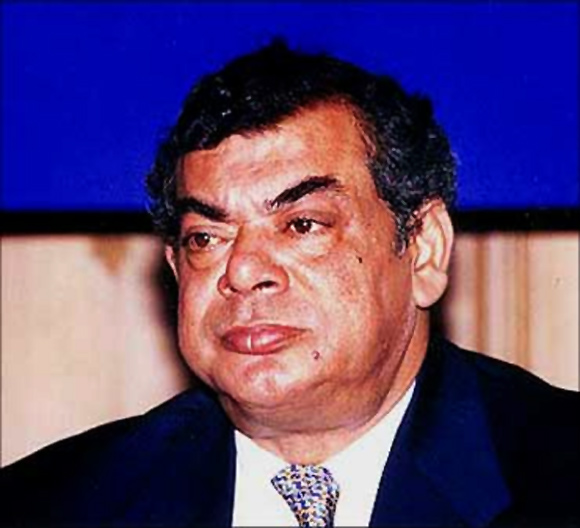
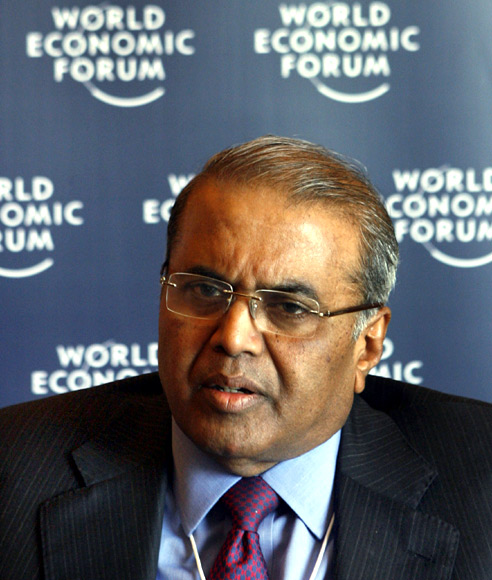
article